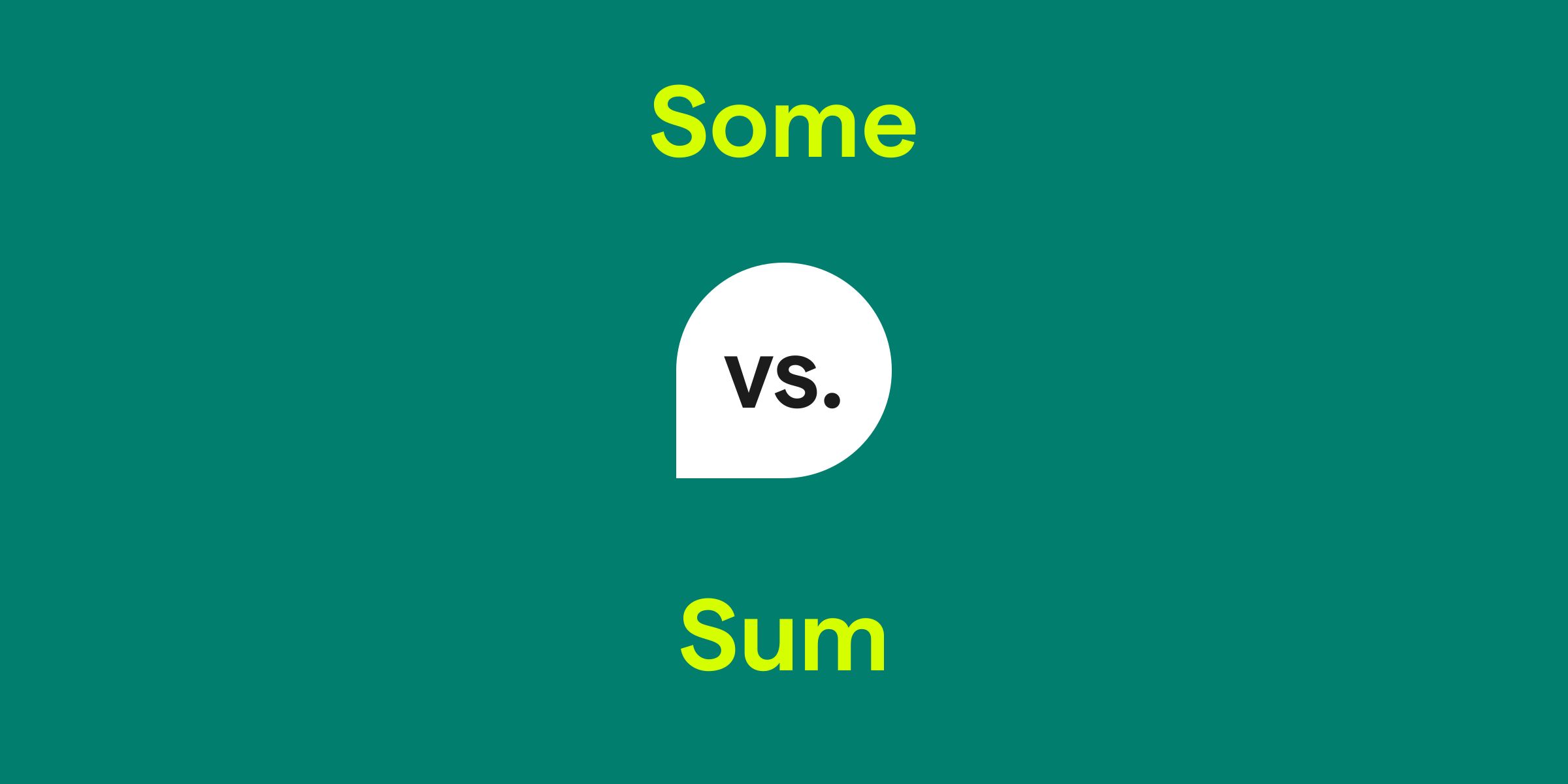Some vs. Sum: What's the Difference?
Understanding the difference between some and sum is crucial for clear communication. Some is an indefinite pronoun and adjective used to refer to an unspecified amount or number of something, often indicating a portion of a larger whole. On the other hand, sum refers to the result of addition, the total amount resulting from combining numbers, or a concise statement presenting the essence of a larger body of information.

How do you use the word some in a sentence?
The word some is used when referring to an indefinite or unknown quantity, which cannot or need not be specified. It can be used with both countable and uncountable nouns. Use some to indicate an unspecified minor quantity, a portion of something, or to make an offer or request less direct.
Examples of some in a sentence
- I would like to have some water, please.
- She has some interesting ideas about renewable energy.
- Could you lend me some money until payday?
How do you use the word sum in a sentence?
The word sum is primarily used in mathematical contexts to denote the total achieved by adding numbers together. It can also refer to a concise statement or abstract of the main points of an argument or theory. In a business setting, sum may represent a certain amount of money.
Examples of sum in a sentence
- The sum of 5 and 7 is 12.
- He offered a large sum for the antique painting.
- To sum up the discussion, we're agreeing to proceed with the plan.
Some and sum definition, parts of speech, and pronunciation
Some definition:
As a determiner, some refers to an unspecified amount or number of people or things. As a pronoun, it can replace a noun indicating an indefinite or unknown quantity. As an adverb, some can express to a certain extent or degree.
Some parts of speech:
Some pronunciation:
The word 'some' is pronounced as /sʌm/, with a soft 's' and a short 'u' sound as in 'up.'
Sum definition:
As a noun, sum means the total amount resulting from the addition of two or more numbers, amounts, or items. It can also denote the essence or a concise and precise version of a larger piece of information or document. As a verb, sum means to calculate the total number.
Sum parts of speech:
Sum pronunciation:
The word 'sum' is pronounced as /sʌm/, which ironically sounds exactly the same as 'some.'
As a determiner, some refers to an unspecified amount or number of people or things. As a pronoun, it can replace a noun indicating an indefinite or unknown quantity. As an adverb, some can express to a certain extent or degree.
Some parts of speech:
- As an adjective: 'I have some apples in the basket.'
- As an adverb: 'The solution was some helpful to me.'
Some pronunciation:
The word 'some' is pronounced as /sʌm/, with a soft 's' and a short 'u' sound as in 'up.'
Sum definition:
As a noun, sum means the total amount resulting from the addition of two or more numbers, amounts, or items. It can also denote the essence or a concise and precise version of a larger piece of information or document. As a verb, sum means to calculate the total number.
Sum parts of speech:
- As a noun: 'They calculated the sum of all transactions.'
- As a verb: 'She can sum up the report in just a few sentences.'
Sum pronunciation:
The word 'sum' is pronounced as /sʌm/, which ironically sounds exactly the same as 'some.'
Some vs. Sum in a nutshell
In short, some and sum are homophones, meaning they sound the same but have different meanings and usages. Some is versatile, functioning as an adjective, pronoun, or adverb to imply a certain quantity or degree. Sum, despite its identical pronunciation, always connects to totalization, whether in arithmetic or summarizing content. Knowing these distinctions can ensure precision in both mathematical and everyday contexts.
Get AI Writing Assistance Wherever You Type
Make sure your vocabulary is on point and every punctuation mark is in the right place, no matter where you’re working. Grammarly works across more than 1 million websites and apps so you can improve your writing without copying, pasting, or breaking focus.

More Commonly Confused Words
Interest piqued? Pore (not pour) over other commonly confused words to help your writing reach peak (not peek) performance.